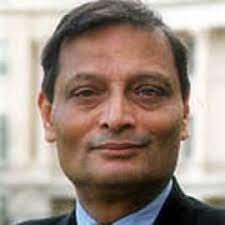When Sylvia Boorstein inverted the popular dictum “don’t just sit there, do something” in the title of her bestselling book “Don’t Just Do Something, Sit There,” she turned the spotlight on an idea that many people know to be true. Boorstein is a disciple of Indian Vipassana teacher Nani Bala Barua, and her book is about mindfulness and meditation, but the message has wide application.
The corporate world favours action over reflection and the average executive is usually engulfed in a constant stream of activities throughout the day: attending meetings, checking emails, making phone calls. Yet often, they achieve very little. Their energy is fully spent in daily routines, with no time left for dealing with problems that require reflection, systematic planning or creative thinking.

The Late Professor Sumantra Ghoshal of London Business School called this the Active Non-Action Syndrome and he believed it was a central behavioural problem in large companies. “Most managers spend their time making the inevitable happen, instead of doing what managers are paid to do: to make happen what otherwise would not happen,” he said.
Professor Ghoshal believed that managers need both energy and focus to be effective. In his study of 120 managers in a large global company, he found that only 10% had both and he called them “purposeful managers.” Around 40% of the managers studied were of the high energy-low focus kind and he labelled them “distracted managers.”
Since they do not stop to reflect, distracted managers have trouble developing strategies and adjusting their behaviour to new requirements. They are short sighted and often find themselves over-committed. They get involved in multiple projects, with the best of intentions, but their interest wanes. They are not good at confronting change, preferring instead to do what they have always done.
Purposeful managers, on the other hand, tend to be more self aware. They pick their goals with care and achieve them more often than other managers. They husband their energy, and make limited time for emails, phone calls and visitors. They build ‘think time’ into their schedules. “A key distinguishing feature of purposeful managers is their sense of personal responsibility for the challenges they have chosen to respond to,” says Ghoshal.
In his energy-focus matrix, Ghoshal has created two more categories: the low focus-low energy “procrastinator” and the low energy-high focus “disengaged manager”. Procrastinators (30% of the managers studied fell in this category) performed their routine tasks, like attending meetings and writing memos, but they failed to take initiative or drive change.
“Managers procrastinate when they feel insecure or fear failure,” says Ghoshal. “After experiencing a few times that despite making an effort, they could not make a difference, they decide that taking action is not worth the effort. They are in a state of learned helplessness and believe they have no power to control events,”
Disengaged workers (20% of the managers studied fell in this category) on the other hand, are focused, but in a negative way. They are unmotivated and find no meaning in their work. They distance themselves from problems, often pretending they simply do not exist. “They are plagued by feelings of anxiety, uncertainty, anger, frustration and alienation. They deal with these emotions by withdrawing or doing the bare minimum,” says Ghoshal.
The greatest difference between purposeful managers and the other three categories lies in the way they approach work. The others feel constrained by outside forces: their boss, peers, their job descriptions. These external factors determine for them what they can or cannot do. Purposeful managers do the opposite. They decide first what they must achieve and then they work to manage the external environment so they achieve their goals.
Also Read: Good News For Cinegoers As Their Favourite Popcorn, Samosa Set To Get Cheaper












